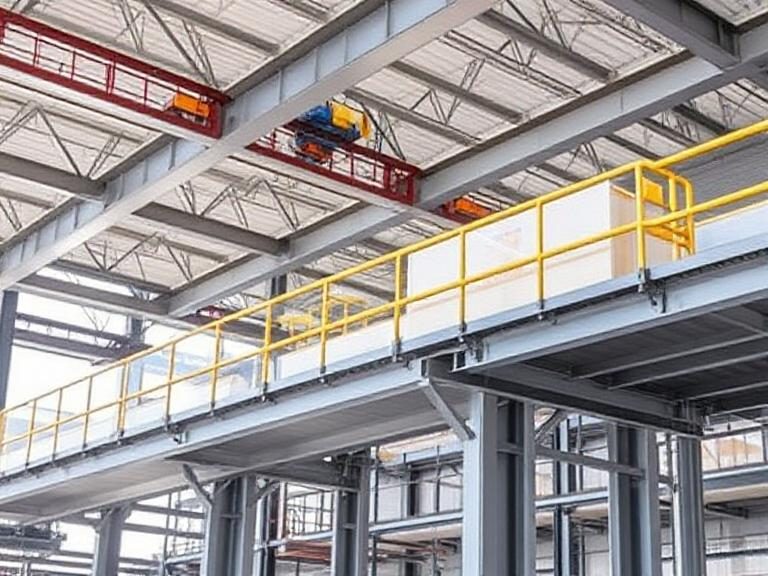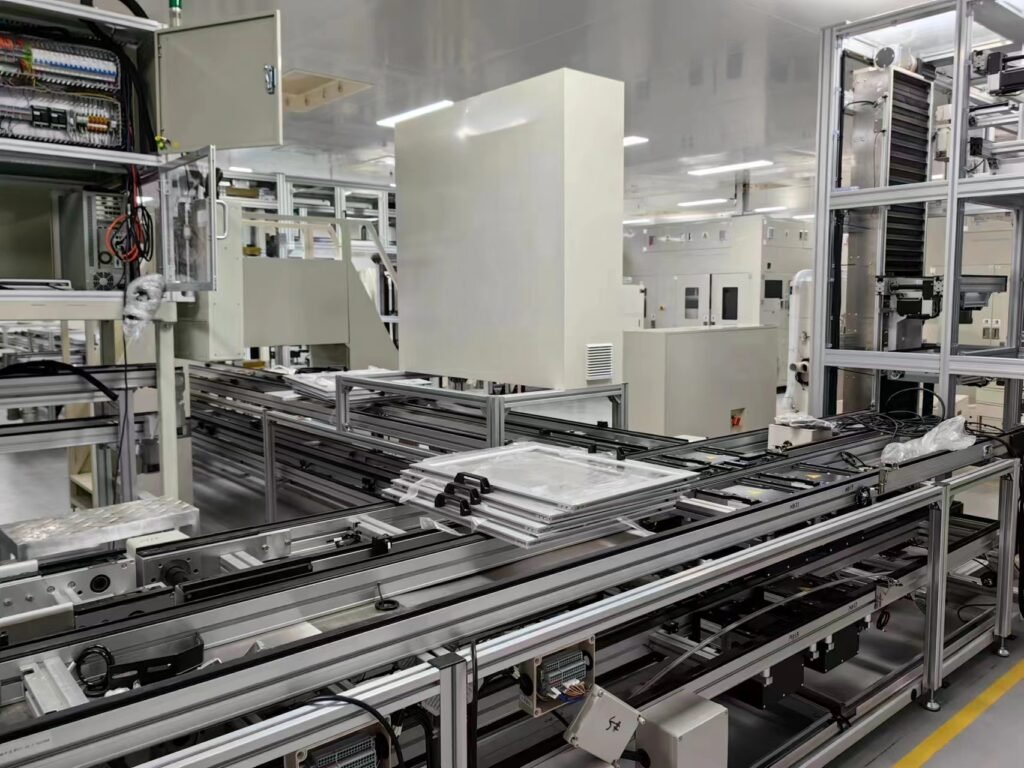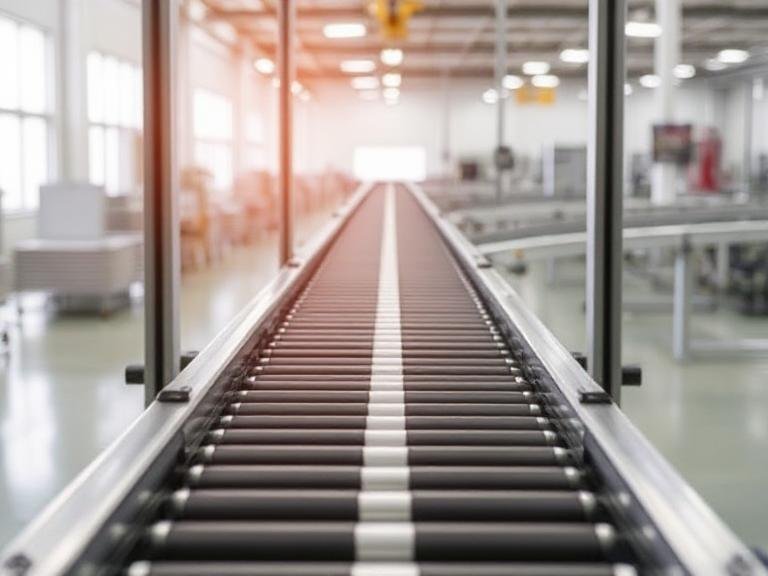Table des matières
- Introduction
- What is a Conveying System in Construction?
- 16 Types de systèmes de transport dans la construction
- 3.1 Systèmes de convoyeurs aériens (verticaux)
- 3.2 Systèmes de convoyeurs à circulation horizontale
- 3.3 Systèmes de convoyage à plusieurs niveaux
- 3.4 Systèmes de transport côte à côte
- 3.5 Systèmes de convoyeurs à bande
- 3.6 Chain Conveyor Systems
- 3.7 Pneumatic Conveyor Systems
- 3.8 Screw Conveyor Systems
- 3.9 Vibrating Conveyor Systems
- 3.10 Bucket Conveyor Systems
- 3.11 Overhead Conveyor Systems
- 3.12 Roller Conveyor Systems
- 3.13 Inclined Conveyor Systems
- 3.14 Systèmes de convoyage de palettes
- 3.15 Slat Conveyor Systems
- 3.16 Systèmes de convoyage automatisés
- Why Conveyor Systems are Essential in Construction
- Choosing the Right Conveying System for Your Construction Project
- Vitrans: A Leading Manufacturer of Conveyor Systems
- Foire aux questions (FAQ)
- Conclusion
1. Introduction
In the world of construction, efficiency and productivity are paramount. Conveying systems play a critical role in ensuring the smooth movement of materials and equipment, reducing manual labor, and enhancing overall workflow. Conveyor systems are essential for moving heavy or bulky items, such as building materials, tools, and components, across various stages of the construction process. This article explores the 16 different types of conveying systems in construction, their functions, and the benefits they bring to the industry.

2. What is a Conveying System in Construction?
A conveying system is a mechanical device or network designed to transport materials from one location to another in a construction or manufacturing setting. These systems are commonly used to move bulk items, including sand, gravel, concrete, and steel components, as well as equipment across different levels of a building or site.
Types of conveying systems vary based on their application, such as horizontal, vertical, or inclined conveyance. The right type of conveying system can streamline processes, reduce labor costs, and significantly improve productivity and safety on construction sites.
3. 16 Types of Conveying Systems in Construction
There are numerous types of conveying systems designed for specific functions and materials within construction. Each type has distinct advantages depending on the layout, load requirements, and materials being transported.
3.1 Systèmes de convoyeurs aériens (verticaux)

Aerial conveyor systems are designed to transport materials vertically, often in large-scale construction projects. These conveyors are typically used to move items such as bulk aggregates, sand, or concrete from ground level to elevated platforms or different building levels.
- Applications: Used in high-rise construction, demolition, and material recycling.
- Avantages: Space-saving, efficient for transporting large quantities of materials to elevated positions.
3.2 Systèmes de convoyeurs à circulation horizontale

Convoyeurs à circulation horizontale move materials along a horizontal plane, typically in a loop or continuous motion. These conveyors are widely used for assembling components, transporting materials along assembly lines, or transferring building materials to different sections of a construction site.
- Applications: Efficient for moving building supplies, tools, and equipment across a large construction area.
- Avantages: Simple design, cost-effective for horizontal transport.
3.3 Systèmes de convoyage à plusieurs niveaux

Multi-level conveyor systems are used when materials need to be transported across multiple elevations. These conveyors are designed with the ability to move materials up and down between various building levels or platforms.
- Applications: Moving materials across floors in multi-story buildings, used in logistics and automated warehouses.
- Avantages: Saves space, increases efficiency by integrating vertical and horizontal movement.
3.4 Systèmes de transport côte à côte

Side-by-side conveyors feature two or more conveyors operating in parallel to transport materials across the same path. This design is often used for larger-scale material handling needs, allowing for increased throughput and efficiency.
- Applications: Moving large volumes of materials simultaneously across a construction site.
- Avantages: High capacity, allows for simultaneous movement of multiple materials.
3.5 Systèmes de convoyeurs à bande
Belt conveyors are among the most commonly used conveyors in the construction industry. They feature a continuous loop of material (usually rubber or fabric) that moves materials across a flat or inclined surface.
- Applications: Used for transporting aggregates, concrete, and other bulk materials.
- Avantages: Versatile, low maintenance, capable of moving materials over long distances.
3.6 Chain Conveyor Systems
Convoyeurs à chaîne use a series of interconnected links to carry materials. These systems are robust and designed to handle heavier loads than belt conveyors.
- Applications: Moving heavy materials such as metal, concrete, and equipment across the construction site.
- Avantages: Durable, high load capacity, great for transporting heavy or large items.
3.7 Pneumatic Conveyor Systems
Pneumatic conveyors use air pressure to move materials through pipelines. These systems are ideal for conveying lightweight materials such as dust, powder, or grains.
- Applications: Transporting cement powder, sand, and other bulk materials.
- Avantages: Clean and efficient for conveying fine materials, reduces dust pollution.
3.8 Screw Conveyor Systems
Screw conveyors use a rotating spiral screw to move materials. They are typically used for materials that need to be moved over a short distance in a controlled manner.
- Applications: Used for transporting bulk materials like sand, gravel, and grains in a compact system.
- Avantages: Simple design, effective for moving materials in confined spaces.
3.9 Vibrating Conveyor Systems
Vibrating conveyors use vibrations to move materials along a track. They are typically used to transport small to medium-sized bulk materials that need gentle handling.
- Applications: Used in construction to move aggregates and small debris.
- Avantages: Efficient for fragile or small materials, low maintenance.
3.10 Bucket Conveyor Systems
Bucket conveyors use a series of attached buckets to carry materials. These systems are ideal for vertical or inclined movement of bulk materials.
- Applications: Transporting materials to elevated levels or across long distances.
- Avantages: Ideal for materials that need to be lifted vertically, such as sand or gravel.
3.11 Overhead Conveyor Systems
Overhead conveyors are mounted above the ground to transport materials without taking up floor space. They are ideal for construction sites with limited space.
- Applications: Moving materials across busy construction sites or factory floors.
- Avantages: Saves valuable floor space, suitable for moving materials around obstacles.
3.12 Roller Conveyor Systems
Roller conveyors are designed with a series of rollers that allow materials to move through a system via gravity or powered rollers.
- Applications: Used for handling boxes, containers, and materials in construction logistics.
- Avantages: Easy to integrate into existing systems, cost-effective, flexible design.
3.13 Inclined Conveyor Systems
Inclined conveyors are used to move materials at an angle, typically from a lower elevation to a higher one.
- Applications: Moving materials to higher levels, often used in bulk material handling in construction.
- Avantages: Space-saving, efficient for vertical transport.
3.14 Systèmes de convoyage de palettes
Pallet conveyors are used for moving palletized loads. These systems are often used in warehouses or construction sites for transporting large, heavy items.
- Applications: Moving large equipment or materials on pallets.
- Avantages: Heavy-duty, capable of handling large loads.
3.15 Slat Conveyor Systems
Slat conveyors use slats to move materials, typically used for heavy or hot items.
- Applications: Used in construction to move large, heavy, or high-temperature materials.
- Avantages: Durable, handles heavy materials effectively.
3.16 Systèmes de convoyage automatisés
Automated conveyor systems use sensors and motors to transport materials with minimal human intervention. These systems are integrated with control systems to optimize efficiency.
- Applications: Used in high-volume construction sites where automation is required.
- Avantages: Increases efficiency, reduces manual labor.
4. Why Conveyor Systems are Essential in Construction
Conveyor systems are integral to improving productivity, reducing costs, and enhancing safety on construction sites. Here are a few reasons why these systems are essential:
- Efficacité: Conveyors allow for the continuous and automatic movement of materials, improving the speed and efficiency of construction projects.
- Réduction des coûts: Using conveyors to move materials reduces labor costs and minimizes downtime, allowing construction projects to stay on track.
- Sécurité: Conveyors reduce the risk of injuries associated with manual handling, ensuring that materials are moved safely and efficiently.
5. Choosing the Right Conveying System for Your Construction Project
Selecting the appropriate conveyor system for your construction project depends on several factors, including the type of materials to be moved, the layout of the site, and the project’s specific needs.
- Material Type: For bulk materials like sand or gravel, belt conveyors or pneumatic systems may be ideal. For heavy loads, a pallet or chain conveyor might be more appropriate.
- Site Layout: If space is limited, overhead or vertical conveyors can save floor space.
- Project Scope: For larger, high-volume projects, automated or multi-level conveyor systems may offer the best efficiency.
6. Vitrans: A Leading Manufacturer of Conveyor Systems

Vitrans is a leading manufacturer of pallet conveyors and pallet transfer systems with over 10 years of experience in the industry. Their systems are widely used in industrial automated production and assembly lines. By leveraging a rich supply chain in China, Vitrans can provide high-quality conveyor systems at competitive prices with short lead times. Their systems are trusted globally for their durability, reliability, and cost-effectiveness.
Vitrans Products:
- Systèmes de convoyeurs aériens (verticaux)
- Systèmes de convoyeurs à circulation horizontale
- Systèmes de convoyage à plusieurs niveaux
- Systèmes de transport côte à côte
7. Frequently Asked Questions (FAQs)
1. What types of materials can conveyor systems move?
Conveyor systems can handle a wide variety of materials, including bulk goods like sand and gravel, heavy equipment, boxes, and even fragile items.
2. How do I know which conveyor system is right for my project?
The best conveyor system depends on your specific needs, such as the type of material, the layout of the construction site, and the required capacity. Consulting with a conveyor system expert can help you choose the right system.
3. Are conveyor systems customizable?
Yes, many conveyor systems are customizable to fit the unique needs of your construction site. Features such as size, speed, and incline can be adjusted to match your requirements.
8. Conclusion
Conveyor systems are a critical part of modern construction, enabling faster, safer, and more efficient material handling. From simple belt conveyors to complex automated systems, the right conveyor system can significantly impact the success of a construction project. Companies like Vitrans provide high-quality conveyor systems that are cost-effective, reliable, and adaptable to a wide range of construction needs.
Tabel of Recommended Conveyor Systems
| Modèle | Type | Material Capacity | Key Feature | Price |
|---|---|---|---|---|
| Vitrans Aerial Conveyor System | Vertical Conveyor | Bulk materials | Space-saving, high-capacity transport | Competitive |
| Vitrans Multi-Level Conveyor System | Multi-Level Conveyor | Heavy loads | Efficient for multi-story sites | Competitive |
| Vitrans Pallet Conveyor System | Convoyeur de palettes | Heavy equipment | Heavy-duty, high-load capacity | Competitive |
| Vitrans Side-by-Side Conveyor | Side-by-Side Conveyor | Multiple materials | High throughput, simultaneous transport | Competitive |



